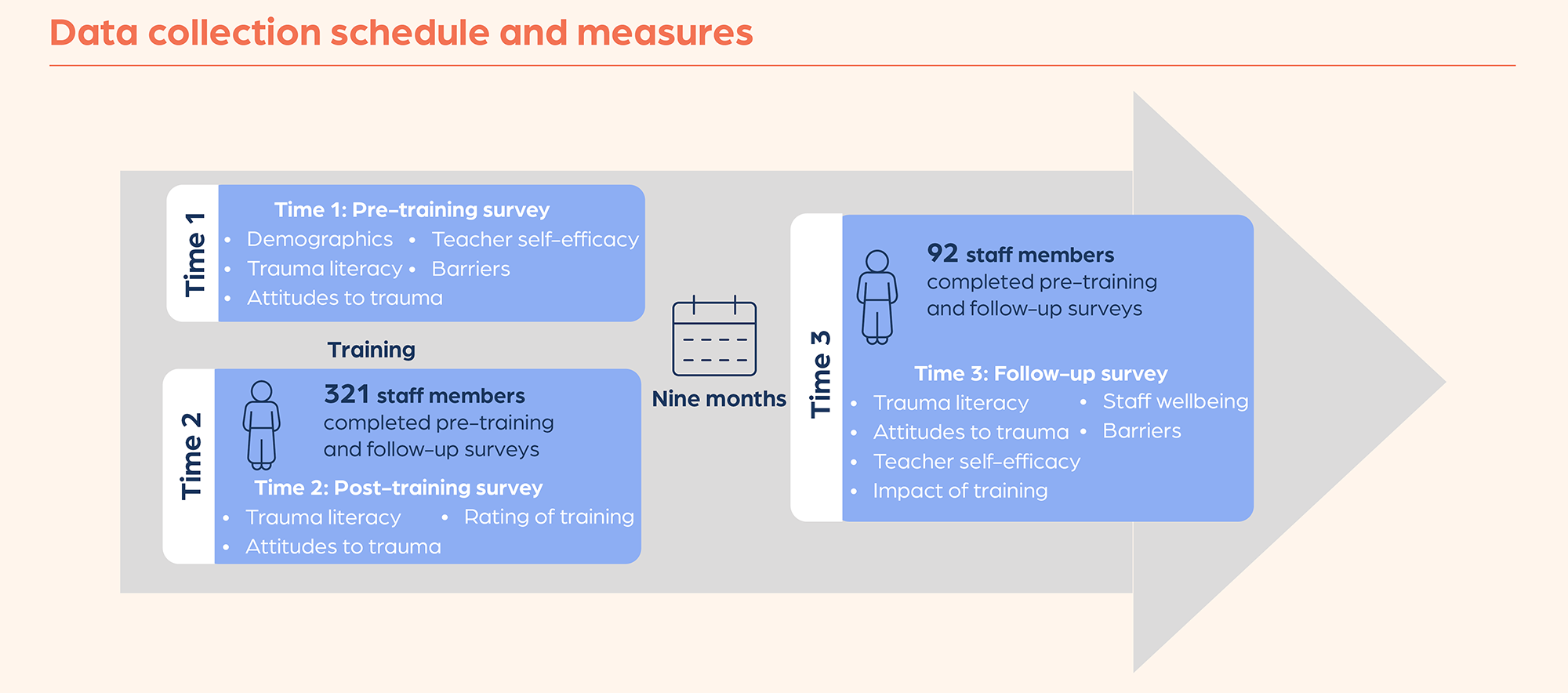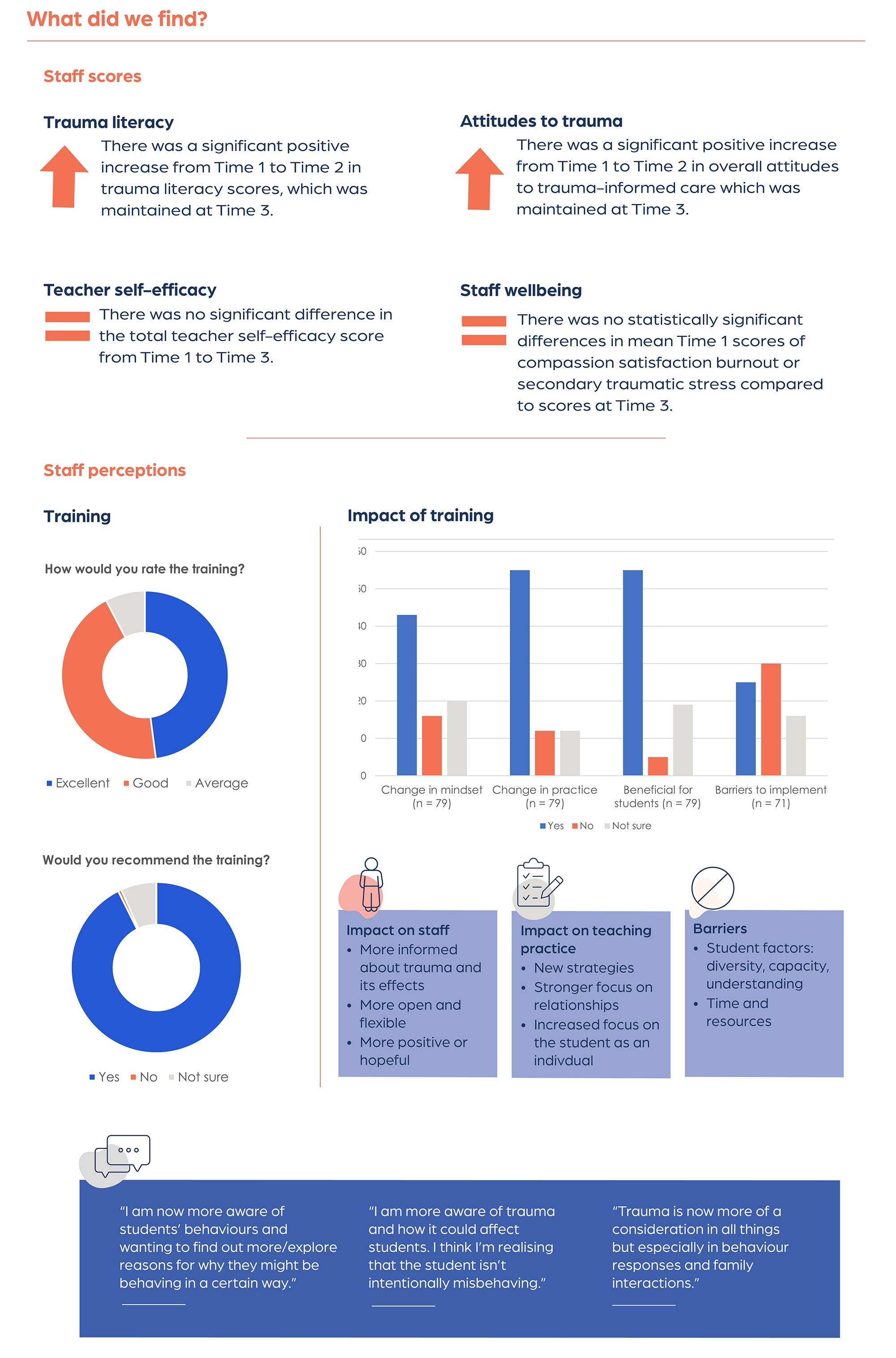Why
Children who have experienced trauma may face difficulties in academic achievement, working memory and language development. They may also exhibit behavioural issues and mental health challenges.
Autistic students are particularly vulnerable to trauma. They experience higher rates of bullying compared to non-Autistic peers and are more likely to have experienced multiple adverse childhood experiences, which can negatively impact their health.
Aspect Education staff has the potential to play a crucial role in supporting students who have experienced trauma. However, limited research exists on trauma-informed practices in specialist school settings, particularly autism-specific schools.
The Berry Street Education Model (BSEM) is a trauma-informed positive education approach. It focuses on professional development for teachers and has shown promising results in improving student behaviour, engagement and academic outcomes.
The Berry Street team has engaged with Aspect Education to provide training in trauma-informed education for all school staff (teachers and teacher aides) in nine Aspect schools. The Aspect Research Centre for Autism Practice (ARCAP) team will evaluate the BSEM training and implementation to explore:
• What impact BSEM training has on teacher knowledge, confidence, wellbeing and attitudes
• What changes, if any, are made to teacher practice after completing the BSEM training
• How the BSEM is implemented in autism specific schools
• Any facilitators or barriers to implementation
• Whether BSEM training is associated with any changes in incident reports or attendance.
The research

What we found

Making a difference
This is the first study investigating the use of the BSEM in an autism-specific school. Overall, the BSEM training effectively enhanced trauma literacy and attitudes towards trauma-informed care among staff, and was perceived as contributing to improved teaching practices and better support for students with trauma backgrounds.
Future efforts could focus on addressing the identified barriers to maximise the benefits of trauma-informed education training:
• Developing additional training specifically focused on students with intellectual disability, outlining practical strategies and case studies relevant to this particular group.
• Establishing peer support networks where more experienced teachers can guide and support other teaching staff in implementing trauma-informed practices, sharing best practices and troubleshooting challenges.Research team
Dr Vicki Gibbs, Aspect Research Centre for Autism Practice (ARCAP)
Dr Abbey Love, ARCAP
Dr Ru Ying Cai, ARCAP
Dr Chris Edwards, ARCAP
Dr Tom Brunzell, Berry Street
Started
2023
Ends
2024
Funding
Aspect

